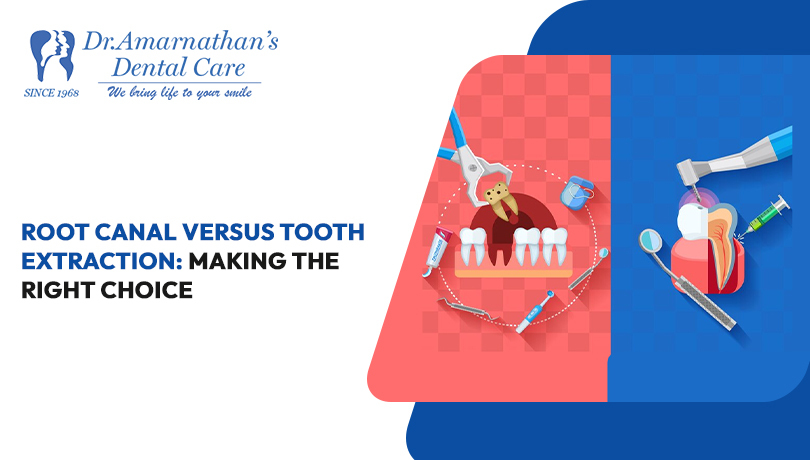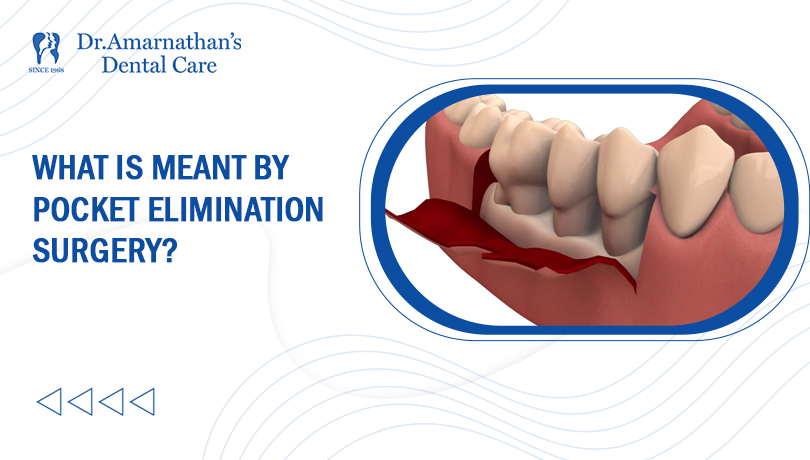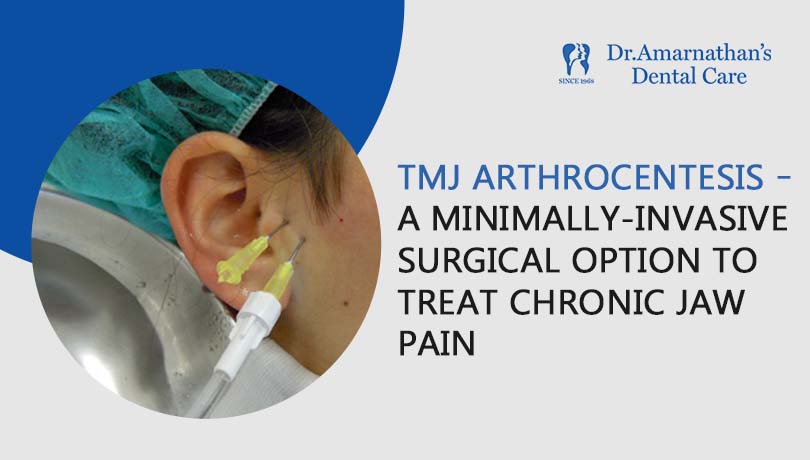
Root Canal versus Tooth Extraction: Making the Right Choice
Facing severe tooth decay or damage can be overwhelming. When confronted with this dilemma, choosing between a root canal and tooth extraction is crucial. Both procedures target pain relief and oral health preservation but vary in approach and outcomes. Understanding their disparities empowers individuals to make informed decisions about their dental care. This comprehensive guide delves into the nuances of root canals and tooth extractions, shedding light on their procedures, pros, and cons. Whether you’re grappling with dental issues or seeking preventive knowledge, this article will equip you with the insights to navigate this dental crossroads confidently.
Root Canal Explained
A root canal is a dental procedure to rescue a severely infected or damaged tooth. Another name for root canal treatment is Endodontic Therapy. Dentists often recommend salvaging severely damaged teeth. This procedure involves removing the infected pulp, which comprises nerves, blood vessels, and connective tissue, from inside the tooth. By meticulously cleaning and disinfecting the tooth’s interior, dentists aim to eradicate bacteria and prevent further infection. Once the cleaning process is complete, the tooth is filled with a biocompatible material and sealed to avoid reinfection.
The following is what you need to know about it:
Procedure Overview
- The dentist eliminates the infected pulp from within the tooth.
- The tooth undergoes cleaning, disinfection, and filling to prevent additional infection.
Pros of Root Canal
- Preserves natural tooth structure and functionality.
- Relieves pain and discomfort caused by infection.
- Prevents the need for tooth extraction and potential gaps in the smile.
Cons of Root Canal
- Requires multiple dental visits for completion.
- It may be more expensive than extraction, especially if additional restoration is needed.
Recovery and Aftercare
- You may experience mild discomfort and sensitivity for a few days.
- Regular dental check-ups and good oral hygiene are necessary for long-term success.
Advantages of Root Canals
- They preserve the natural tooth structure, enabling individuals to maintain their smile’s aesthetics and functionality.
- By eliminating the source of infection, root canals provide prompt relief from pain and discomfort.
- Opting for a root canal prevents the need for tooth extraction.
- It eliminates the possibility of a visible gap in the dental arch.
Drawbacks of Root Canals
Despite its benefits, root canal therapy has its drawbacks. The procedure typically requires multiple dental visits, prolonging the treatment process. Furthermore, root canals may incur higher costs than extractions, especially if additional restorative work, such as crowns, is necessary. In addition, some individuals may experience mild discomfort and sensitivity following the procedure, which usually subsides within a few days.
Tooth Extraction Explained
Tooth extraction involves removing a severely damaged or infected tooth from the mouth. It is also known as Exodontia. It is a dental procedure reserved for cases where a tooth is severely damaged or infected beyond repair. The dentist administers local anesthesia to numb the area surrounding the affected tooth during extraction. Subsequently, using specialized instruments, the dentist gently loosens the tooth from its socket and removes it entirely from the mouth. Below is what you should know:
Procedure Overview
- The dentist numbs the area and removes the entire tooth from its socket.
Pros of Tooth Extraction
- Immediate relief from severe pain and discomfort.
- A single-visit procedure is usually less expensive than a root canal.
- Suitable for cases where the tooth is too damaged for root canal treatment.
Cons of Tooth Extraction
- Results in permanent loss of the natural tooth.
- Additional procedures like dental implants or bridges may be required to restore functionality.
- This process can lead to adjacent teeth shifting and bite alignment changes over time.
Recovery and Aftercare
- Follow the dentist’s instructions for proper healing.
- Avoid strenuous activities and consume soft foods for a few days.
- Consider options for tooth replacement if necessary.
Recovery following tooth extraction entails following the dentist’s post-operative instructions diligently. This includes avoiding strenuous activities and consuming soft foods to prevent irritation to the extraction site. Proper oral hygiene should also be practiced to aid in healing. Furthermore, individuals should consider options for tooth replacement, such as dental implants or bridges. Doing this will help maintain oral health and restore the appearance of their smile.
Advantages of Tooth Extraction
- Choosing tooth extraction offers immediate relief from severe pain and discomfort associated with the damaged tooth.
- Plus, it is often a single-visit procedure. This makes it a more time-efficient and cost-effective option than root canal therapy.
- Tooth extraction may also be the preferred choice. It can be when the tooth is too damaged or compromised for root canal treatment to be successful.
Drawbacks of Tooth Extraction
However, tooth extraction comes with its drawbacks. Primarily, it results in the permanent loss of the natural tooth, which can affect oral aesthetics and functionality. Furthermore, individuals who undergo tooth extraction may require additional dental procedures, such as dental implants or bridges. This is necessary to restore chewing function and prevent neighboring teeth from shifting. Over time, the absence of a tooth can lead to changes in bite alignment, potentially causing further dental issues.
Making the Right Choice: Root Canal vs Tooth Extraction
When deciding between a root canal and tooth extraction, consider the following factors:
Extent of Damage
- A root canal may be preferred for preserving teeth with salvageable structure.
- Extraction may be necessary if the tooth is extensively damaged beyond repair.
Long-Term Oral Health Goals
- Discuss your long-term oral health goals and preferences with your dentist.
- Consider cost, time commitment, and potential impact on adjacent teeth.
Consultation with Dentist
- Seek advice from a qualified dentist or endodontist who can assess your case.
- They can offer personalized recommendations tailored to your individual needs and circumstances.
Closing Thoughts
Choosing between a root canal and tooth extraction is a significant decision with long-term implications for oral health. Understand the differences between the two procedures and consult with your dentist. With this, you can make an informed choice that best suits your needs. Whether preserving a natural tooth with a root canal or opting for extraction, prioritize maintaining a healthy smile for years to come.












